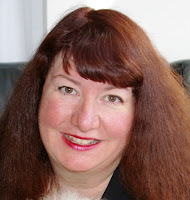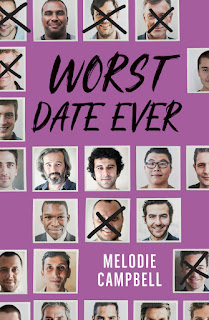by Dixon Hill
Four weeks ago, I posted here, asking what readers thought of mixing romance and mystery genres.
I wondered: When do the two genres make a good fit, why does this happen (or not), and how can a writer mix the two genres to best effect?
Readers provided excellent comments, ranging the gamut of romance/mystery collusion.
- Leigh mentioned the difference between the concepts of a story categorized as ‘romance with mystery elements’ vs. one presented as a ‘mystery with romance elements’—a very large difference, indeed, it seems to me, particularly in terms of structure and emphasis, where writing is concerned, as well as readers’ expectations.
- Fran and Janice pointed to a connection between the essence of dance and the essence of mystery—a concept that may, perhaps, be more important than it might at first appear—while Fran went on to provide an interesting “visual” in her comment.
- Elizabeth gave us some excellent specifics, stating that romance and mystery elements work well together, depending on story characters and plot conflicts, as well as story arc, stressing the need for these elements to organically fit the story, serving the plotline, instead of being gratuitously tossed in.
- An anonymous reader broached the subject of mysteries enjoying a romantic tension, even when the story arc doesn’t necessarily conclude with a Happy Ever After ending.
- And, C.S. Poulson, a reader I’d not encountered before, but warmly welcome, asked how the addition of romance to any well-written story could ever be a bad idea.

Ms. Poulson's question surprised me, frankly, because it so closely resembled the question in my own mind, which had set me on this track of thinking in the first place.

A properly executed romance subplot should—at least it seems to me—provide added depth to the story and help us get to know certain characters a bit better. Surely, I’d think, injecting the protagonist into a romantic relationship of some kind—even if it’s never acted upon—ought to provide a writer with ways to illuminate aspects of the protagonist’s philosophy and behavior that might otherwise be difficult to mine in a mystery without this flavor.
On the other hand:
While I’ve read many mysteries in which romance elements increased story depth and fleshed-out characterization, sometimes even raising plot stakes and ratcheting-up dramatic tension, I’ve also, unfortunately, encountered those in which romance elements seemed at odds with the mystery, breaking the mystery’s tension at inopportune moments or simply tripping-up the flow of the storyline.
Which is why I found myself asking almost exactly the question posed by C.S. Poulson, in her comment: I wondered how the addition of romance to any well-written story could be a bad idea, and why?
Looking for answers to this question, as well as wondering how to prevent the aforementioned problem, is what led to my last two posts, and this one today.
Explosive Theory and Romance/Mystery Interplay
In my last post, I told you about an experience I had, in the army, experimenting with impromptu explosive sine wave modulation. These shock waves, created when explosives are detonated, manifest themselves as sine waves that travel through those items targeted for demolition. In fact, according to explosive theory, they are largely the force that does the dirty work: tearing steel girders apart, punching holes through reinforced concrete, or throwing dirt high into the air while creating large holes in the ground.
 |
Sine Waves, properly combined,
can result in great beauty. |
I wrote that post because, having ruminated about this subject, I’ve become rather convinced that there is a relation between what I view as sine wave modulation and mystery/romance genre interaction. It's a simple truth that has undoubtedly been quite obvious to many of you reading this. I, however, hadn’t given it any thought before. And, consequently, the idea is new to me.
In short, it seems to me that success or failure in genre-mixing, in general, is not only concerned with points made by readers in the above-mentioned comments, but is also reliant on something I would call “genre harmony and resonance” and the resultant “amplitude modulation” incurred by the story’s dramatic tension.
That mouthful may be enough to make you cross-eyed, though your own experiences may naturally have led you to internalize the same idea, but couched in a very different manner. I tend to think in fairly mathematic or scientific terms, however, and therefor think it might be a good idea to express myself visually.
We’ve all seen drawings of story arcs, and these drawings come in many different versions:
These plot diagrams look rather blocky in nature.
But, others seem to model along a curve, or general curve . . .

. . . some of which tend to resemble sine waves or modified sine waves.
We've all enjoyed books or stories that employed mutiple layers of plot or depth. One of the more complicated story arc diagrams I encountered rather closely resembled my own mental picture of story arc interaction within such a multi-level, or -- as in our case -- cross-genre, story:
And this mental picture, which existed in my head long before I ever found this diagram online, is what led me to think about successful genre mixing in terms of sine wave propagation. Which, naturally (for me, at least) called explosive theory to mind, and made me remember that experience I had modulating sine waves at Ft. Bragg all those years ago.
In diagram terms, this is what the visiting blaster was trying to train us to:
(Example 1) Locate and time our explosive charges so that their resulting sine waves would cancel out.
(Example 2) Meanwhile, my friends and I managed to locate and time our charges so that the resultant sine waves piggy-backed on each other, thus increasing the sine wave's amplitude -- which got us in hot water with a couple of generals.

(Example 3) A more realistic example of what we achieved, however, probably more closely resembles this: The sine waves we created probably didn't quite piggy-back, being slightly out of phase (i.e.: the purple and blue waves are out of sync with each other), resulting in a sine wave (red wave) with increased amplitude, but not a sine wave with amplitude increased to the level we were targeting.
This interaction of sine waves, that are out of phase with each other (Ex. 3), or else in direct conflict with each other (Ex. 1), became of particular interest to me when considering mystery/romance cross-genre pieces that did not seem to work.
I'm still thinking about ways in which mixed-genre story arcs might be combined to create "sine wave" arcs of increased tension, or perhaps sometimes accidentally cancel each other out--resulting in reader disappointment. I'm also thinking about how to properly locate and time disparate elements, within a single story that enjoys a mix of two or more genres, with their tension arcs arranged in proper phase.
And this question of Phase seems potentially crucial to me. Sometimes, when sine waves interact, the result is a wave with perhaps a greater amplitude -- that wave is no longer regular. It's no longer a sine wave.
As I explained earlier, I really don't understand music. Don't get me wrong: I enjoy listening to it. I like singing along, even. But, I've never been able to truly understand it. Which is why I'm a writer and not a musician.
On the other hand, I do enjoy dancing. A LOT! And, I also know that musical notes or tones involve waves, and that these tones may be altered by modulating the frequency or amplitude of these waves.
 |
| Another design created by sine waves. |
Harmony and resonance are two terms most people probably identify with music, thus I believe we begin to see why the concept of interacive wave theory (such as the one I practiced that day on the demo range) and dance come into play here.
I used a dance metaphor in the pictorial portion of an earlier post, to illustrate my thoughts about the interplay of mystery and romance. This wasn’t a conscious decision my part. However, I’ve since come to think it may well have sprung from my unconscious (and not necessarily correct) understanding of the mixed-genre relationship.

I'm sure that anyone who constructed a book with all the pieces fully plotted on a graph would only succeed in creating something too static to appeal to most readers.
Literature is not math. Yet, I can't help wondering about sound waves (which I understand ARE mathematical) that combine in harmony pleasing to the ear -- as well as the phase, frequency and amplitude of their component notes --wondering if this might help serve as a model for the preferable shaping of literary wave forms when combining plot elements or other genres.
While doing my research, I was surprised to run across site about perfume fragrances at
http://www.indieknow.net/2013/08/a-beginners-guide-to-fragrances.html in which "Lisa C." writes: “Ever learn about a story arc? It starts off with your intro, leading to rising action, punctured with a climax and then falling action tying everything up in the conclusion (obviously there are more complicated arcs as well).
“Your perfume has a similar ‘adventure’ while sitting on your skin. You might see the anatomy of perfumes' notes depicted as a pyramid, but I find I understand it better when I give my perfume its own story arc because your perfume is constantly in a state of evaporation and change while on your skin.”
Some interesting videos I found may be located at the following URL's.
http://www.indiana.edu/~emusic/acoustics/phase.htm
Discordant and canceled sine waves on this page:
http://www.math.umn.edu/~rogness/math1155/soundwaves/
https://www.youtube.com/watch?v=uIuJTWS2uvY
Let me know your thoughts.
--Dixon










































